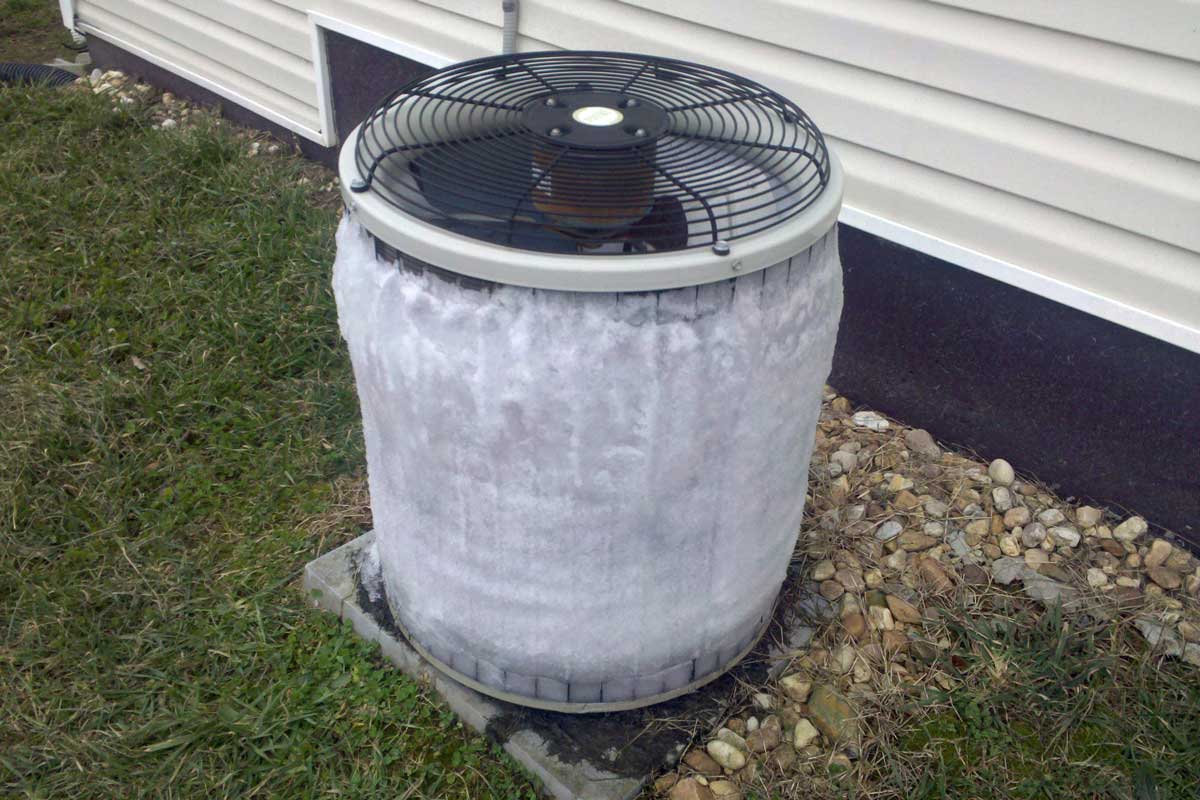Your air conditioner may need to be defrosted if you are noticing that it is not working as efficiently as it should. This is something that you are able to do yourself, but if you have never done this before, you might be wondering how long the defrosting process will take.
Air conditioners take between 2 and 24 hours to defrost. The exact amount of time cannot be predicted, but the following factors can give you a better idea of how long it will take:
- Size of unit
- The extent of ice buildup
- Temperature outside
If you have more questions regarding the time it takes for a central AC to defrost, don't fret. In this guide, we'll discuss more about these factors, how they affect the defrosting process, and what other safety considerations there are. Just keep reading!

Factors That Affect Defrosting Time
Unit Size
The size of your unit will affect how long the defrosting process takes. A smaller unit may take 2 hours with minimal ice buildup. You may be able to simply turn your unit off and let it sit for a while. If this is the case, it can be ready to use again in 2-3 hours. If you have a bigger home and a more powerful AC unit, it may take as long as a day to completely thaw.
Extent of Ice Buildup
If your unit has a problem that you have not been able to catch right away, you will have more ice buildup in your air conditioning unit. If the buildup is severe, you can expect it to take longer to completely thaw out. However, if you have been lucky enough to catch the issue quickly, you will most likely have less ice buildup. This may result in a quicker defrosting time.
Outside Temperature
The temperature outside also affects the defrosting times. If it is hotter outside, the AC unit will defrost quicker. If the day is rainy and cool, it may take longer to defrost. A blow dryer on low heat may work on smaller units to help the process along.
It is important to maintain your unit and keep an eye on potential problems so they can be taken care of before they get worse. While defrosting your unit is a good way to solve the problem of ice buildup, you may find that you have a more serious issue. You will need the help of a professional if you have ignored a problem that has been going on for a while.
Common Questions
If you have never had to defrost your unit before, you may have some questions as you go through the process. We've brought you the answers to some common questions that other homeowners have had regarding their AC units.

What Causes A Central Air Conditioning Unit To Freeze Up?
Your central air conditioning unit can freeze up for a variety of reasons. Some of the most common causes include:
Poor Drainage
When the drain system within the unit is faulty, it causes the water to pool inside. When this occurs, there is a greater chance that you will have ice buildup. It is a good idea to have someone check the unit if you notice this is occurring. While defrosting your unit will temporarily fix this issue, you will want to consult a professional if this keeps happening.
Dirt And Pet Hair Buildup
If you do not regularly clean your unit’s fan and air filter, you may have a buildup of pet hair and dirt. This can cause ice buildup and create future problems.
Restriction Of Airflow
The return air grille connects to the ductwork inside your home to allow airflow into the air conditioning system. If the return grill is blocked, it can cause the evaporator coil to freeze. The coil is meant to absorb heat from the air. If there is no airflow, it will cause ice buildup.
Refrigerant Levels
Your unit should always have the recommended amount of refrigerant. Not enough can cause your unit to blow hot air. Too much refrigerant can cause your unit to run too cold and result in a buildup of ice.
AC Setting
The ideal temperature for your AC unit is 78 degrees. This helps to keep your home and loved ones cool while also saving energy. Anything lower has the potential to cause issues with your central AC unit.
Can You Pour Hot Water Onto A Frozen AC?
The simple answer is: no! This is a piece of electrical equipment. Pouring water of any temperature onto it can cause shortages and even an electrical fire! Stay safe and do not attempt to do this. If you do not want to attempt to fix your frozen unit yourself, consult the help of a certified technician.
How Do You Know If The Central Air Conditioner Is Frozen?
Sometimes you may be able to hear the “crackling” of ice inside of the unit. To be certain, it is recommended to unplug the AC and disconnect the breaker that it is connected to. Look for ice on the outside of it and open the panel, as per instructions, to look inside for ice. If you do see ice, set the unit to “fan” for several hours. After that has occurred, reset it to the desired temperature and see if it blows cold air. If it is back to normal, the issue was freezing water.
Is A Frozen AC Unit Dangerous?
A frozen air conditioner can cause issues, for sure. You want to act immediately so that you do not lose the whole unit. First, either unplug it or set it to the “fan” setting. This way, it does not continue to freeze. At this point, you want to look for some of the issues listed above in this article. If you let it run without solving the problem, it will eventually break down completely.
Summary
As you have read, there are many factors that determine why a unit has ice buildup and how long it will take to defrost. Keep in mind that frequent ice buildup may indicate a more significant issue. While defrosting your unit is an acceptable temporary solution, it will not fix a more serious problem.
Be sure to contact a professional if you suspect that your unit requires more skilled maintenance. It is recommended not to try and fix anything yourself. Call the HVAC experts and let them do their work!
Before you go, be sure to check out these other articles that may be of interest:
How Long Does An HVAC Unit Typically Last? [And How To Make It Last Longer]
